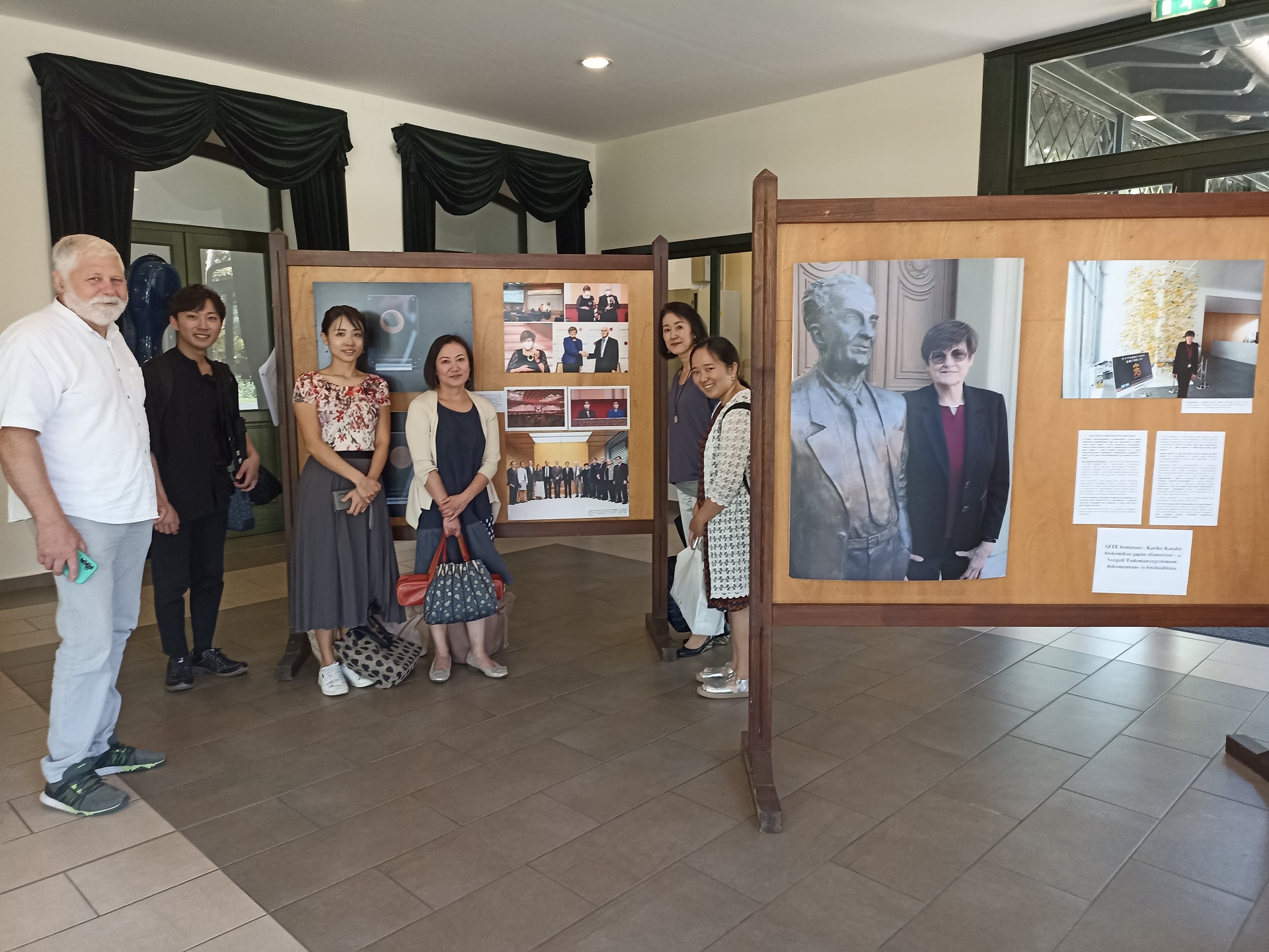
Japan is the first ! This was the impression visitors had during their visit to the Vigadó in Gyula. On Japan Day, held on September 9, 2023, the University of Szeged showed how the research results of mRNA researcher Katalin Karikó, SZTE alumna and professor, were discovered and evaluated in the "Land of the Rising Sun". A group of Japanese medics from Szeged also gained experience at the Japan Day in Gyula.
Hiroshima, the city destroyed by the atomic bomb, has become a symbol of peace. They say that Hiroshima was not the end of the World War, but the starting point of the Cold War. But after August 6, 1945, the theoretical physicist Robert Oppenheimer, also known as the "father of the atomic bomb", was one of the first to lobby for the international control of nuclear energy and the prevention of the spread of nuclear weapons. Today, talking about Hiroshima means speaking against the war — emphasized the organizers of the Japan Day in Gyula.
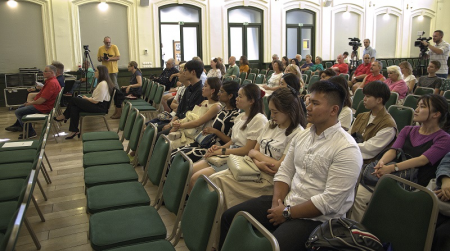
Bridges of science
The result of the scientist's everyday work, the Japanese reception of Katalin Karikó's discoveries, was represented by the exhibition of the University of Szeged.
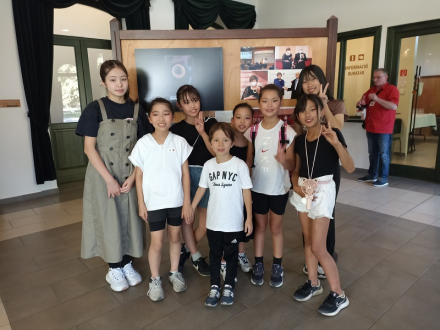
In the exhibition titled "The path of the mRNA researcher Katalin Karikó through Japanese eyes", the archival photos represented that Japan was among the first to recognize the significance of the 2005 and 2012 discoveries of the mRNA researcher.
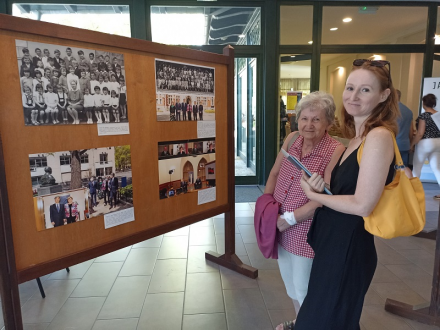
Many of the residents of Gyula and the surrounding area participated in the Japan Day and viewed the SZTE exhibition "The path of mRNA researcher Katalin Karikó through Japanese eyes"
Among Katalin Karikó's accolades, the beauty of the Keio University Award and the Japan Prize was presented through the photos of István Sahin-Tóth, a creative associate of SZTE NKI. The history of the award ceremonies was reproduced by archival press photos.
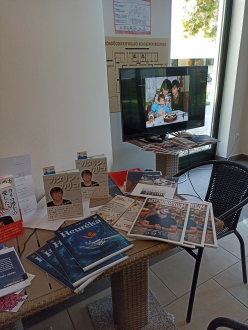 The dissemination of knowledge in Japan is exemplary - we learned from Mária Mernyei, a doctor living in Japan. Mernyei, who was Katalin Karikó's former kindergarten classmate and elementary school classmate, appeared in several photographs of the exhibition because Karikó invited her former classmate as her guest to the award ceremony for all the awards she won in Japan.
The dissemination of knowledge in Japan is exemplary - we learned from Mária Mernyei, a doctor living in Japan. Mernyei, who was Katalin Karikó's former kindergarten classmate and elementary school classmate, appeared in several photographs of the exhibition because Karikó invited her former classmate as her guest to the award ceremony for all the awards she won in Japan.
Japanese public television produced an informational program about the conversation between Nobel laureate Yamanaka and Karikó, who was honored with more than a hundred awards. As part of the SZTE exhibition, visitors to the Vigadó in Gyula could watch the science popularization film, which also shows Katalin Karikó's life in a nutshell.
The first volume of interviews about Katalin Karikó was published in Japan. In addition to the informative Japanese publications, those interested could also read the English-language storybook published in the United States, which presents the story of Katalin Karikó's fairy-tale-like journey in children's language with colorful drawings.
Ilona Újszászi, a senior communications expert at SZTE NKI, who put together the program offer, was guiding those interested through the complex exhibition entitled "The journey of mRNA researcher Katalin Karikó through Japanese eyes".
Selfie with the ambassador and the star researcher
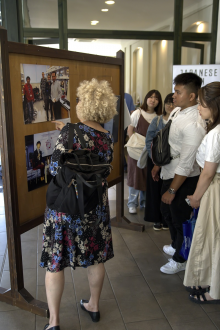
A small group of Japanese students from the Szent-Györgyi Albert Faculty of Medicine of the University of Szeged also attended the presentation of SZTE on the Japan Day in Gyula.
Apart from the second-year medical students, the majority arrived in Hungary only a few days before the event and gladly signed up for the trip to Gyula. They were able to experience how the inhabitants of a small Hungarian town get to know their country's history and traditions. They were able to learn about Katalin Karikó — the most famous professor of their alma mater, the University of Szeged — and her relation to Japan. They were also able to meet the representatives of their country.
His Excellency Otaka Masato, Ambassador Extraordinary and Plenipotentiary of Japan to Hungary, thought it important to greet the participants of the Japan Day in Gyula.
The diplomat mingled with the visitors, participated in several programs of Japan Day, and took several photos of the SZTE exhibition.
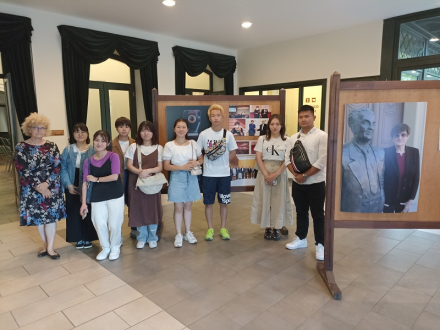
Visitors to the Japan Day in Gyula took many photos of SZTE's Karikó exhibition and of the Japanese university students visiting the small town in Békés County from Szeged for the sake of the program
Otaka Masato not only knew that Katalin Karikó was a biology student at the University of Szeged but also recalled that Katalin Novák, the current head of state of Hungary, was born in Szeged.
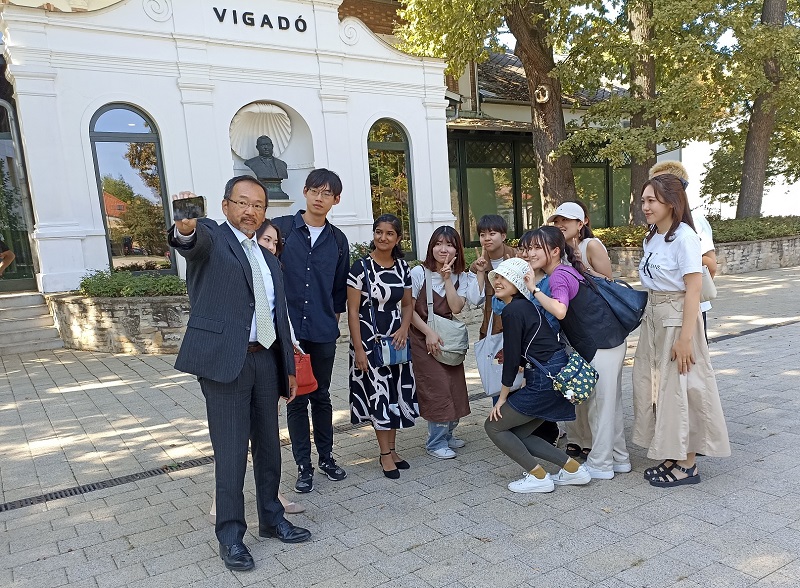
The Japanese ambassador to Hungary, Otaka Masato, also took a selfie with the Japanese students of SZTE. Photo: I. Ú.
The diplomat also talked with the mayor of Gyula — a former law student of the University of Szeged — Ernő Görgényi, who opened the Japan Day programs. Otaka Masato not only chatted with Japanese students who were enjoying the small town's hospitality and exploring its sights but also took selfies with them.
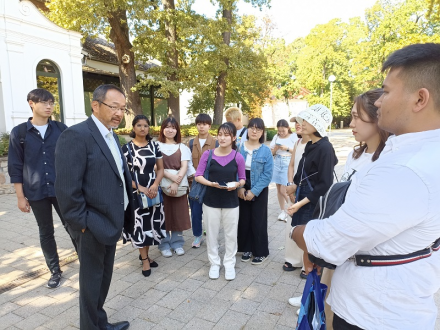
The ambassador of Japan accredited to Budapest, who has already visited Gyula several times, had a long talk with the group of Japanese students studying at the University of Szeged. The program presenting the "Country of the Rising Sun" was organized for the fifth time in Gyula Photo: I. Ú.
The Japanese university students took many photos of Gyula and the Japan Day held there for the fifth year. In the most interesting selfie, three first-year medics are smiling, the students are holding a mobile phone on which star scientist Katalin Karikó is smiling at the group. The organizer of the SZTE exhibition entered into a video phone call with the world-renowned scientist who learned about the reception of the program and included in the conversation the Japanese students who are now starting their university studies in Szeged. At the top of the lively telephone conversation, the students took a selfie with the star scientist.
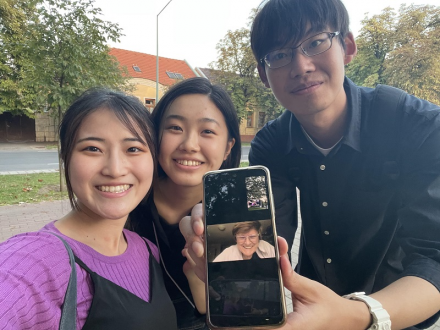
The Japanese medics studying at the University of Szeged talked to star scientist Katalin Karikó on the phone, evaluated Japan Day in Gyula, and then took a selfie.
The 1000 cranes: legend, hope, peace
Miyuki Hibara screened a video about the destruction and rebirth of Hiroshima. The sights of the city were presented by Ferenc Hankó, the main organizer of the program and the president of MAPON, i.e. Gyula Hungarian-Japanese Cultural Association, through the lens of the camera. The program also included the presentation of Anitta K. Mizsur under the title 1000 cranes: legend, hope, peace, and the experiences of backpacker Soma Csekeő and martial artist László Gregor.
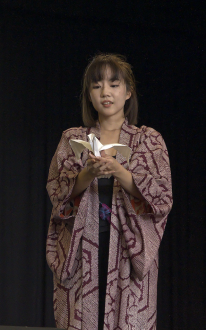
Kimonos lined up in front of paper models of Japanese warships. Buyers of Japanese goods could admire the beauty of calligraphy by watching Ferenc Zsolt Zapcsák's brushstrokes 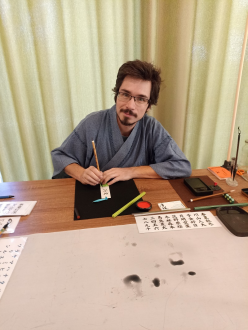 Japanese teacher Ferenc Zsolt Zapcsák knows the mysterious movements of calligraphy
Japanese teacher Ferenc Zsolt Zapcsák knows the mysterious movements of calligraphy
The linguist, specializing in Japanese, drew and painted expressions such as faith, perseverance, search...
In addition to tastings of typical Japanese drinks, a fair of trinkets was held.
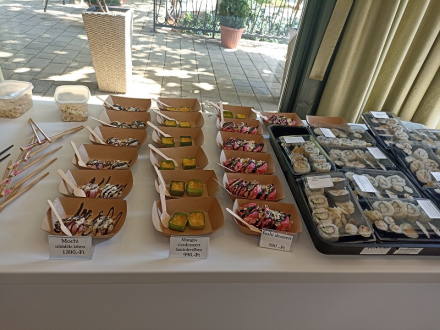
Sushi and Japanese cookies were offered by Gourmet Garden from Újszeged
The symbolic world of origami and ikebana also caught the attention of visitors.
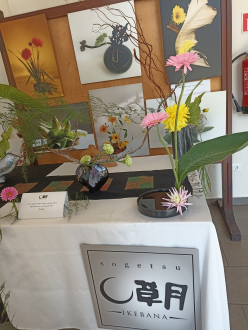
A workshop on the art of Japanese flower arrangement, ikebana, was also held in the Vigado in Gyula
A performance titled Aidol, Macuri, and Musubi, performed by Japanese dancers, gave insight into the movement art traditions of the Far Eastern country.
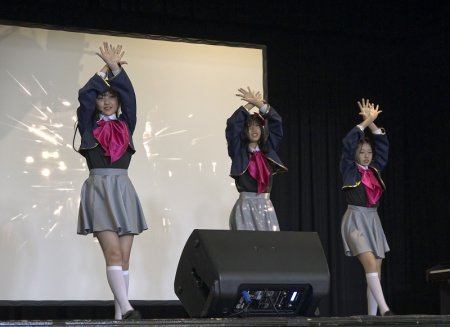
The children's group from the Japanese school in Budapest taught the audience characteristic movements. Members of the Sakura Ensemble introduced the audience to the world of Japanese melodies with the help of authentic instruments and costumes. At the end of the rich program, Japanese music students gave a concert.
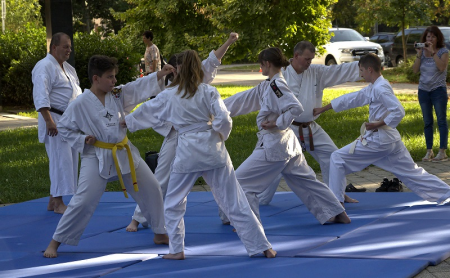
The Japanese sports show attracted many visitors to the square in front of the Vigadó in Gyula
Katalin Bianka Kóra, a communications student at the University of Szeged — who also took on the role of moderation at the event — will present the colorful program cavalcade in an exam film about Japan Day in Gyula.
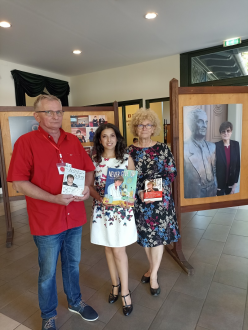
The main organizer of the Japan Day in Gyula, Ferenc Hankó, worked together with Katalin Bianka Kóra and Ilona Újszászi, coordinators of the program of the University of Szeged, as well as the staff of SZTE NKI
The richness and quality of the Japan Day in Gyula enchanted the Japanese student group of SZTE to such an extent that one of the medics presented an origami star to the organizer of the SZTE program as an expression of appreciation.
SZTEinfo
Photos: Miklós Kóra, I. Ú.

